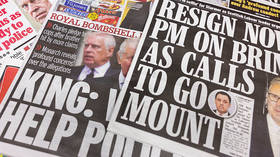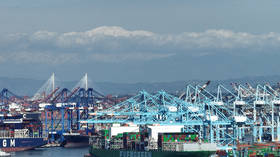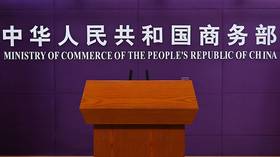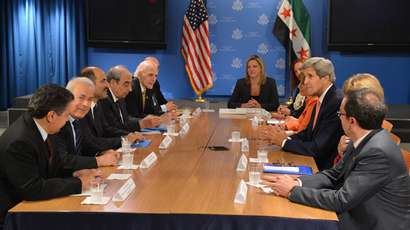Helping Syrian rebels wouldn’t benefit US - Dempsey
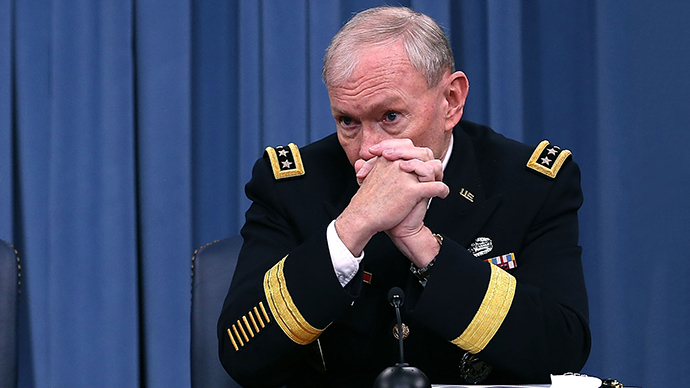
The Chairman of the Joint Chiefs of Staff does not believe the Syrian rebels would support US interests in case America helps them defeat Assad, according to General Martin Dempsey’s letter, obtained by AP.
In an August 19 letter to Congressman Eliot Engel (D-N.Y.),
Dempsey writes that the US military had the capability to destroy
the Syrian air force and thus shift the balance of the two year
old war in favor of the rebels. The General however doubts the
reasonability of doing so.
"The use of U.S. military force can change the military balance,” Dempsey said. “But it cannot resolve the underlying and historic ethnic, religious and tribal issues that are fueling this conflict.''
Engel is an advocate of increasing US military presence in Syria.
He proposed the use of cruise missiles and other weapons against
Assad-controlled air bases in his letter to the Chairman of the
Joint Chiefs of Staff, dated August 5. Dempsey has on the
contrary continually warned the country’s political elite against
stronger military commitment in the conflict, citing the US
experience in Iraq and Afghanistan.
In his letter, Dempsey points out the factionalism of the Syrian
opposition, not all of which shares the Western vision of the
country’s future.
“Syria today is not about choosing between two sides but rather about choosing one among many sides,'' Dempsey says. “It is my belief that the side we choose must be ready to promote their interests and ours when the balance shifts in their favor. Today, they are not.''
Dempsey described Syria's war as “tragic and complex”, which has been supported by the recent developments there.
On Wednesday, reports emerged of deadly chemical weapons use in
Syria, with conflicting accounts of the events in the media
giving the number of casualties from dozens to over 1,000. The
news came on the same day that the UN inspectors arrive in
Damascus to investigate allegations of use of toxic arms.
The Syrian conflict has already killed more than 100,000 people,
with atrocities being committed on all sides. On Tuesday, Kurdish
militias battled against Al-Qaida-linked fighters in the
northeast of Syria. Iraqi officials had to set up an entry quota
for Syrian Kurds fleeing escalating violence against them in
what’s developing into a full blown side conflict of the Syrian war.
When the House and Senate Intelligence Committees gave a green
light to arm Syrian rebels in July, Martin Dempsey was not
optimistic about the move, warning of the huge expenses military
options entailed, specifying that a no-fly zone over Syria could
cost the US between $500 million and $1 billion a month to maintain. He reiterated
his concerns in the letter to Engel.
“It is a deeply rooted, long-term conflict among multiple factions, and violent struggles for power will continue after Assad's rule ends,” he wrote. “We should evaluate the effectiveness of limited military options in this context.”
Dempsey thus supported the Obama administration's current policy
of providing humanitarian assistance and some limited help to
moderate opposition, saying that would be “the best framework
for an effective U.S. strategy toward Syria.''


